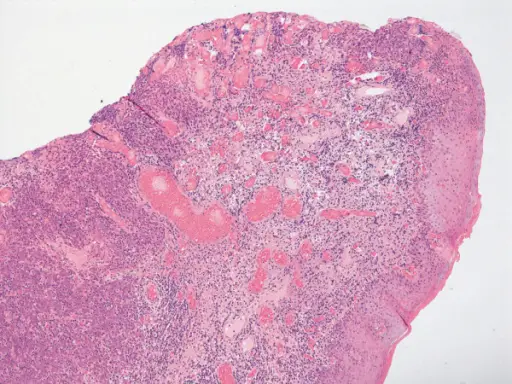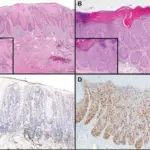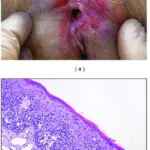Vulvar carcinoma is type of cancer that occurs on the outer surface area of the female genitalia. It commonly forms as a lump or sore on the vulva.
What is the Pathology of Vulvar Carcinoma?
The pathology of vulvar carcinoma is:
-Etiology: The cause of vulvar carcinoma is human papillomavirus and lichen sclerosus.
-Genes involved: p53 mutations.
-Pathogenesis: The sequence of events that lead to vulvar carcinoma are: the growing infected cells cause mutations in genes resulting in even more abnormal growth subsequently causing malignancy and cancer in vulva.
-Morphology: The morphology associated with vulvar carcinoma shows elevated white, pink, or red bumps.
-Histology: The histology associated with vulvar carcinoma shows ulcerated, exophytic, or indurated mass.
How does Vulvar Carcinoma Present?
Patients with vulvar carcinoma typically in females mostly at age more than 50 years. The symptoms, features, and clinical findings associated with vulvar carcinoma include: itching, color changes, bleeding, pain or burning sensation, rough skin and sores.
How is Vulvar Carcinoma Diagnosed?
Vulvar carcinoma is diagnosed by physical pelvic exam, biopsy, positron emission tomography, and x-ray.
How is Vulvar Carcinoma Treated?
Vulvar carcinoma is treated by excision, vulvectomy, sentinel node biopsy, chemotherapy, immunotherapy, and radiotherapy.
What is the Prognosis of Vulvar Carcinoma?
The prognosis of vulvar carcinoma is good and survival rate is 90%.



